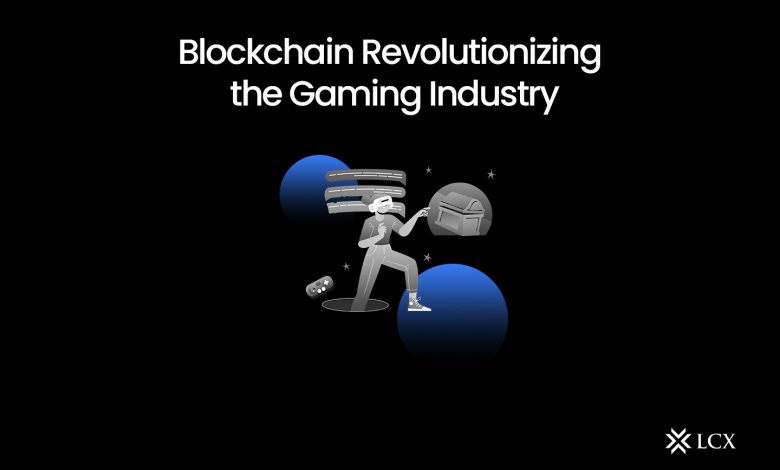Blockchain in the Gaming Industry

- Introduction to Blockchain Technology
- Benefits of Implementing Blockchain in Gaming
- Blockchain Use Cases in the Gaming Industry
- Challenges and Limitations of Blockchain in Gaming
- Future Trends of Blockchain Integration in Gaming
- Case Studies of Successful Blockchain Gaming Projects
Introduction to Blockchain Technology
Blockchain technology is a decentralized, distributed ledger system that securely records transactions across a network of computers. It is best known for its association with cryptocurrencies like Bitcoin, but its applications extend far beyond digital currencies. In recent years, blockchain has gained traction in various industries, including gaming.
One of the key features of blockchain technology is its ability to provide transparency and security in transactions. By using cryptographic algorithms, blockchain ensures that data stored on the network is tamper-proof and immutable. This makes it an ideal solution for the gaming industry, where in-game assets and transactions need to be securely recorded and verified.
Blockchain technology also enables the creation of unique digital assets, known as non-fungible tokens (NFTs). These tokens can represent in-game items, characters, or even entire game worlds. By using blockchain, game developers can create scarcity and ownership of digital assets, allowing players to truly own their in-game items.
Moreover, blockchain technology can facilitate peer-to-peer transactions within games, eliminating the need for intermediaries like game publishers or digital platforms. This can lead to a more decentralized gaming ecosystem where players have more control over their gaming experience.
Overall, blockchain technology has the potential to revolutionize the gaming industry by providing transparency, security, and ownership of in-game assets. As more game developers and players embrace this technology, we can expect to see innovative new gaming experiences that leverage the power of blockchain.
Benefits of Implementing Blockchain in Gaming
Implementing blockchain technology in the gaming industry offers a wide range of benefits that can revolutionize the way games are developed, distributed, and played. Some of the key advantages of integrating blockchain in gaming include:
- Enhanced Security: Blockchain technology provides a secure and transparent way to store data, making it nearly impossible for hackers to manipulate game assets or cheat the system.
- Decentralization: By utilizing blockchain, games can operate on a decentralized network, eliminating the need for a central authority to control the game, which can lead to greater autonomy and fairness for players.
- Ownership of Digital Assets: With blockchain, players have true ownership of their in-game assets, allowing them to buy, sell, and trade items with other players without the risk of losing them due to server shutdowns or account bans.
- Transparency: Blockchain technology enables transparent and verifiable transactions, ensuring that all in-game actions and purchases are recorded on an immutable ledger, reducing the risk of fraud and disputes.
- Interoperability: Blockchain can facilitate interoperability between different games and platforms, allowing players to use their assets across multiple games and ecosystems, creating a more seamless gaming experience.
Overall, the implementation of blockchain in gaming can lead to a more secure, transparent, and player-centric gaming environment that empowers users and enhances the overall gaming experience. As the technology continues to evolve, we can expect to see even more innovative use cases and benefits emerge in the gaming industry.
Blockchain Use Cases in the Gaming Industry
Blockchain technology has found various use cases in the gaming industry, revolutionizing the way games are developed, distributed, and played. By leveraging blockchain, game developers can create decentralized gaming platforms that offer increased security, transparency, and ownership of in-game assets.
One of the key use cases of blockchain in gaming is the ability to create non-fungible tokens (NFTs) that represent unique in-game items such as characters, weapons, or skins. These NFTs are stored on the blockchain, allowing players to truly own their digital assets and trade them with other players in a secure and transparent manner.
Another use case of blockchain in gaming is the implementation of smart contracts, which are self-executing contracts with the terms of the agreement between the player and the game developer directly written into code. This ensures that all transactions within the game are automated and transparent, reducing the risk of fraud and disputes.
Blockchain technology also enables players to earn cryptocurrency rewards for their in-game achievements, creating new monetization opportunities for both players and developers. Additionally, blockchain-based gaming platforms can facilitate cross-game compatibility, allowing players to use their in-game assets across multiple games.
Overall, blockchain technology has the potential to transform the gaming industry by providing players with true ownership of their in-game assets, increasing transparency and security, and creating new revenue streams for developers. As the technology continues to evolve, we can expect to see even more innovative use cases of blockchain in gaming in the future.
Challenges and Limitations of Blockchain in Gaming
While blockchain technology has the potential to revolutionize the gaming industry, there are several challenges and limitations that need to be addressed. One of the main issues is the scalability of blockchain networks, which can lead to slow transaction speeds and high fees. This can be a significant barrier to widespread adoption, especially for games that require real-time interactions.
Another challenge is the lack of standardization in the industry, which can make it difficult for developers to create interoperable games that can interact seamlessly with different blockchain platforms. This can limit the potential for innovation and collaboration within the gaming ecosystem.
Security is also a major concern when it comes to blockchain gaming. While blockchain technology is known for its security features, there have been instances of hacks and vulnerabilities in some blockchain networks. This can undermine the trust of players and developers in the technology, leading to reluctance to adopt blockchain solutions.
Regulatory uncertainty is another limitation that can hinder the growth of blockchain gaming. Different countries have varying regulations around cryptocurrencies and blockchain technology, which can create legal challenges for developers and players alike. This can lead to a lack of clarity around compliance requirements and potential risks for stakeholders in the gaming industry.
Overall, while blockchain technology holds great promise for the gaming industry, there are several challenges and limitations that need to be overcome to realize its full potential. By addressing issues such as scalability, standardization, security, and regulatory uncertainty, the industry can unlock new opportunities for innovation and growth in the future.
Future Trends of Blockchain Integration in Gaming
As blockchain technology continues to evolve, its integration into the gaming industry is expected to grow significantly in the future. This trend is driven by the numerous benefits that blockchain offers to gamers, developers, and publishers alike. Some of the key future trends of blockchain integration in gaming include:
- Enhanced Security: Blockchain technology provides a secure and transparent way to store in-game assets, ensuring that players have full ownership and control over their virtual items.
- Decentralized Gaming Platforms: Blockchain allows for the creation of decentralized gaming platforms, where players can interact directly with each other without the need for intermediaries.
- Tokenization of In-Game Assets: By tokenizing in-game assets on the blockchain, players can buy, sell, and trade virtual items with ease, creating new opportunities for the gaming economy.
- Provably Fair Games: Blockchain enables the creation of provably fair games, where the outcome of each game is verifiable and cannot be manipulated by developers.
- Interoperability Between Games: With blockchain, players can use their in-game assets across multiple games, creating a seamless gaming experience and increasing the value of virtual items.
Overall, the future of blockchain integration in gaming looks promising, with the technology poised to revolutionize the way games are played, developed, and monetized. As more developers and publishers adopt blockchain solutions, gamers can expect a more secure, transparent, and immersive gaming experience in the years to come.
Case Studies of Successful Blockchain Gaming Projects
There have been several successful blockchain gaming projects that have made a significant impact on the industry. These projects have demonstrated the potential of blockchain technology to revolutionize the way games are developed, played, and monetized. Here are some case studies of successful blockchain gaming projects:
- CryptoKitties: CryptoKitties is a blockchain-based game that allows players to collect, breed, and trade virtual cats. Each CryptoKitty is a unique digital asset that is stored on the Ethereum blockchain. The game became incredibly popular when it was launched in 2017, with some CryptoKitties selling for thousands of dollars. CryptoKitties demonstrated the potential of blockchain technology to create unique and scarce digital assets that can be traded securely and transparently.
- Decentraland: Decentraland is a blockchain-based virtual world where players can buy, sell, and build on virtual land using the Ethereum blockchain. Players can create and monetize their own virtual experiences, ranging from games to art galleries to virtual businesses. Decentraland has created a new economy where players can own and profit from their virtual creations, thanks to blockchain technology.
- Gods Unchained: Gods Unchained is a blockchain-based trading card game that allows players to collect, trade, and battle with digital cards. Each card is a unique digital asset that is stored on the Ethereum blockchain, giving players true ownership of their cards. The game has gained a large following and has hosted several high-stakes tournaments with significant prize pools. Gods Unchained has shown how blockchain technology can bring transparency and ownership to the world of digital collectibles.
These case studies highlight the diverse ways in which blockchain technology can be applied to the gaming industry. From creating unique digital assets to enabling true ownership and monetization of virtual creations, blockchain has the potential to revolutionize the way games are developed and played. As blockchain technology continues to evolve, we can expect to see even more innovative and successful blockchain gaming projects in the future.
